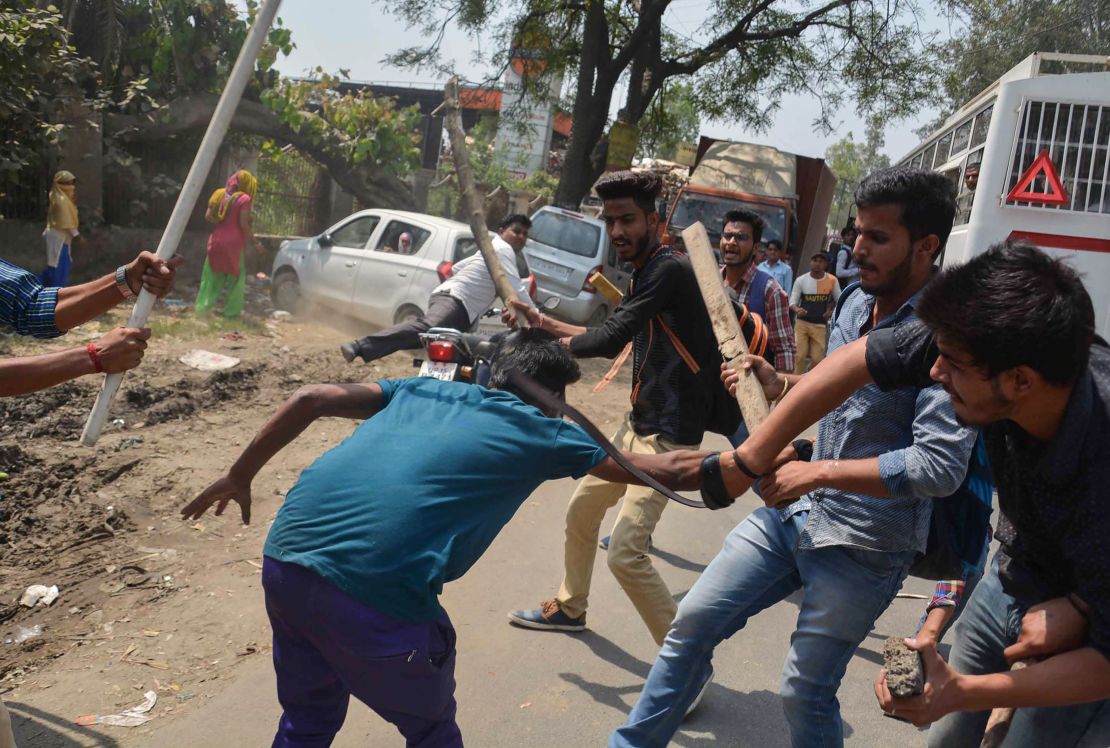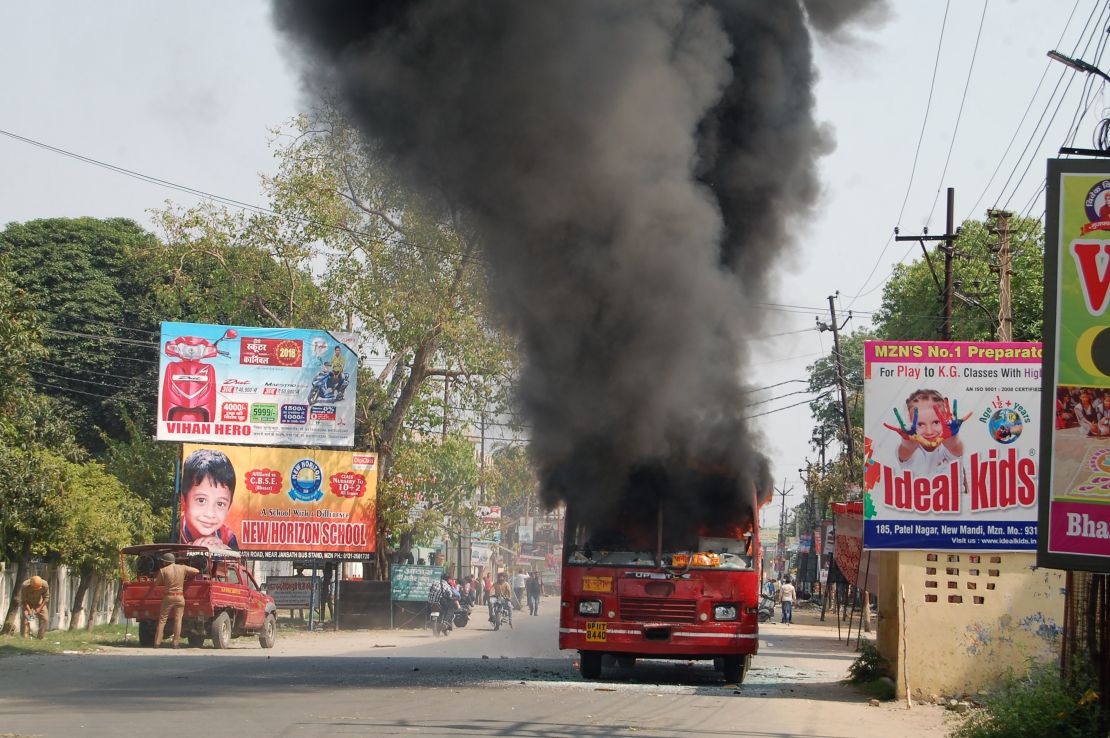India’s Supreme Court has agreed to hear an appeal against one of its rulings after it sparked deadly protests by lower-caste Indians on Monday.
The court’s judgment has faced fierce opposition from critics who said it would weaken protections for the country’s Dalit and other low-caste communities.
On Tuesday, Indian Home Minister Rajnath Singh confirmed the high court had agreed to hear the case after a request by the government following Monday’s protests, when tens of thousands of Dalits took to the streets. At least 10 people died when the demonstrations turned violent.
“I want to assure the people that there has been no dilution whatsoever by my government, rather after coming to power and examining the SC/ST Prevention of Atrocities Act, we have taken a decision to strengthen it,” Singh said in parliament Tuesday.
The Supreme Court ruled last month that police could not immediately arrest someone upon the filing of criminal charges under the Scheduled Caste and Scheduled Tribe (Prevention of Atrocities) Act, which governs how the government prosecutes cases of hate crimes against lower-caste people and people belonging to tribal communities.
While the court said the decision was meant to protect people from false accusations, Dalit activists see the decision as simply another step in what they see as eroding protections for a minority community under the ruling Bharatiya Janata Party (BJP), which came to power in 2014 with the election of Prime Minister Narendra Modi.

“There’s no protection for Dalits in India, especially after the BJP came to power,” said Kandula Ananda Rao, the president of the All India Dalit Rights Federation, and who took part in Monday’s protests.
Fear in the Dalit community
The Dalit are one of the most marginalized groups in the country, a legacy of the now-outlawed caste system which stratified Indian society for generations.
Members of the higher caste sometimes consider Dalits impure, and in certain places, they still aren’t allowed to enter the homes or temples of the upper-caste community or share utensils with them.
In recent years, reports of violent incidents against Dalits have increased dramatically, activists say, pointing to incidents in different states across the country where upper-caste mobs often beat or killed lower-caste Indians.

“In the last three, four years, the atrocities have been rampant. They have increased,” Ramesh Nathan, the national convener for a coalition group of Dalits’ rights organizations that worked to strengthen protections under the SC/ST Act.”There are many lynchings, many attacks against our community.”
“Now the environment is very, very scary, it is for everyone. It’s not only for Dalits, it’s for Adivasis(tribals), Muslims and others as well. It’s become an environment where no one is safe,” said Naga.
CNN’s Sugam Pokharel and Joshua Berlinger contributed to this report

